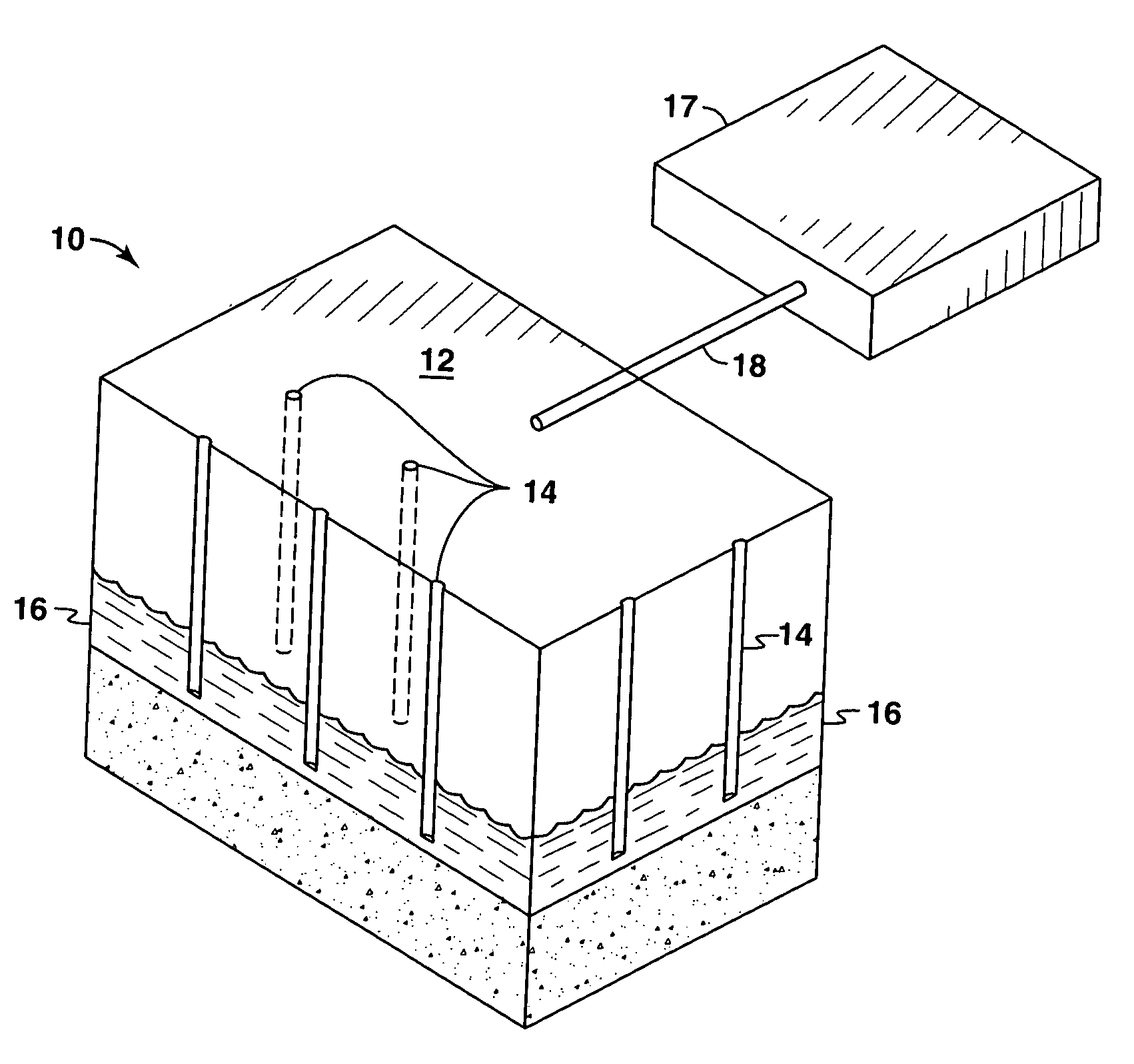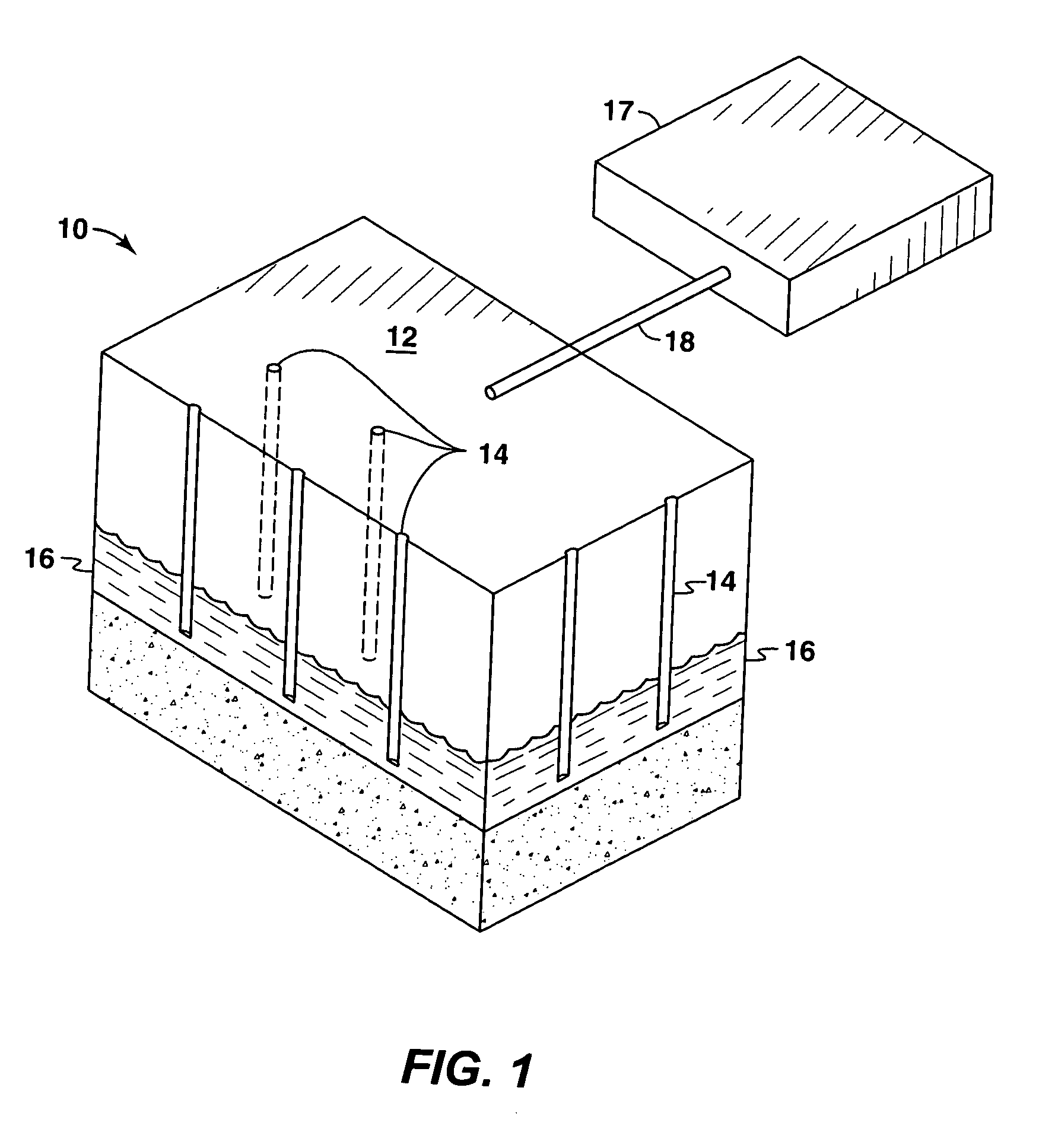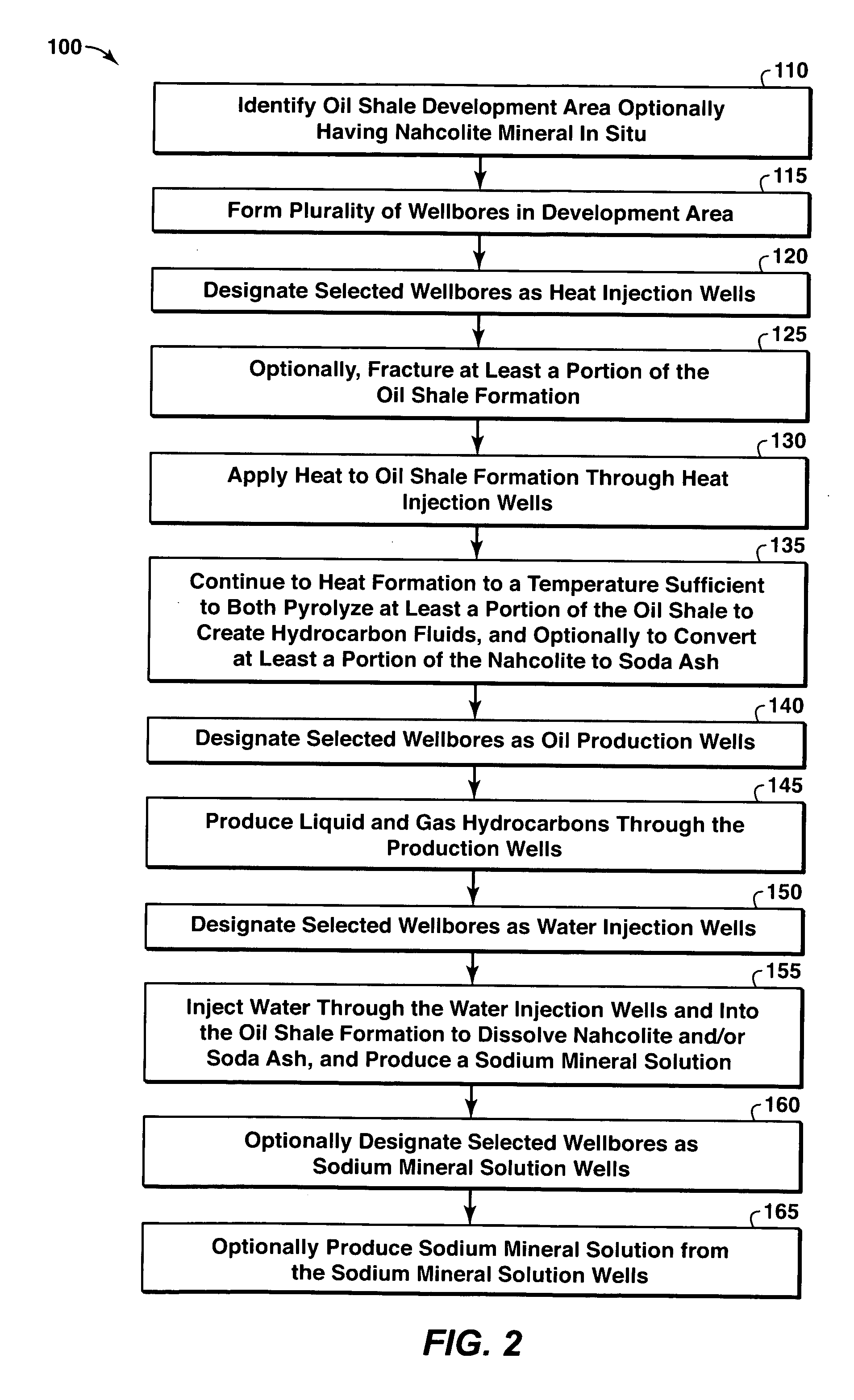Process for producing Hydrocarbon fluids combining in situ heating, a power plant and a gas plant
a hydrocarbon fluid and gas plant technology, applied in the field of hydrocarbon recovery from subsurface formations, can solve the problems of limited application to very shallow formations, decomposition of kerogen, and mostly discontinued practi
- Summary
- Abstract
- Description
- Claims
- Application Information
AI Technical Summary
Problems solved by technology
Method used
Image
Examples
example 1
[0338]Oil shale block CM-1B was cored across the bedding planes to produce a cylinder 1.391 inches in diameter and approximately 2 inches long. A gold tube 7002 approximately 2 inches in diameter and 5 inches long was crimped and a screen 7000 inserted to serve as a support for the core specimen 7001 (FIG. 17). The oil shale core specimen 7001, 82.46 grams in weight, was placed on the screen 7000 in the gold tube 7002 and the entire assembly placed into a Parr heating vessel. The Parr vessel 7010, shown in FIG. 18, had an internal volume of 565 milliliters. Argon was used to flush the Parr vessel 7010 several times to remove air present in the chamber and the vessel pressurized to 500 psi with argon. The Parr vessel was then placed in a furnace which was designed to fit the Parr vessel. The furnace was initially at room temperature and was heated to 400° C. after the Parr vessel was placed in the furnace. The temperature of the Parr vessel achieved 400° C. after about 3 hours and re...
example 2
[0341]Oil shale block CM-1B was cored in a manner similar to that of Example 1 except that a 1 inch diameter core was created. With reference to FIG. 21, the core specimen 7050 was approximately 2 inches in length and weighed 42.47 grams. This core specimen 7050 was placed in a Berea sandstone cylinder 7051 with a 1-inch inner diameter and a 1.39 inch outer diameter. Berea plugs 7052 and 7053 were placed at each end of this assembly, so that the core specimen was completely surrounded by Berea. The Berea cylinder 7051 along with the core specimen 7050 and the Berea end plugs 7052 and 7053 were placed in a slotted stainless steel sleeve and clamped into place. The sample assembly 7060 was placed in a spring-loaded mini-load-frame 7061 as shown in FIG. 22. Load was applied by tightening the nuts 7062 and 7063 at the top of the load frame 7061 to compress the springs 7064 and 7065. The springs 7064 and 7065 were high temperature, Inconel springs, which delivered 400 psi effective stres...
example 3
[0344]Conducted in a manner similar to that of Example 2 on a core specimen from oil shale block CM-1B, where the effective stress applied was 400 psi. Results for the gas sample collected and analyzed by hydrocarbon gas sample gas chromatography (GC) and non-hydrocarbon gas sample gas chromatography (GC) (GC not shown) are shown in FIG. 24, Table 5 and Table 1. In FIG. 24 the y-axis 4020 represents the detector response in pico-amperes (pA) while the x-axis 4021 represents the retention time in minutes. In FIG. 24 peak 4022 represents the response for methane, peak 4023 represents the response for ethane, peak 4024 represents the response for propane, peak 4025 represents the response for butane, peak 4026 represents the response for pentane and peak 4027 represents the response for hexane. Results for the liquid collected and analyzed by whole oil gas chromatography (WOGC) analysis are shown in FIG. 25, Table 6 and Table 1. In FIG. 25 the y-axis 5050 represents the detector respon...
PUM
 Login to View More
Login to View More Abstract
Description
Claims
Application Information
 Login to View More
Login to View More - R&D
- Intellectual Property
- Life Sciences
- Materials
- Tech Scout
- Unparalleled Data Quality
- Higher Quality Content
- 60% Fewer Hallucinations
Browse by: Latest US Patents, China's latest patents, Technical Efficacy Thesaurus, Application Domain, Technology Topic, Popular Technical Reports.
© 2025 PatSnap. All rights reserved.Legal|Privacy policy|Modern Slavery Act Transparency Statement|Sitemap|About US| Contact US: help@patsnap.com



